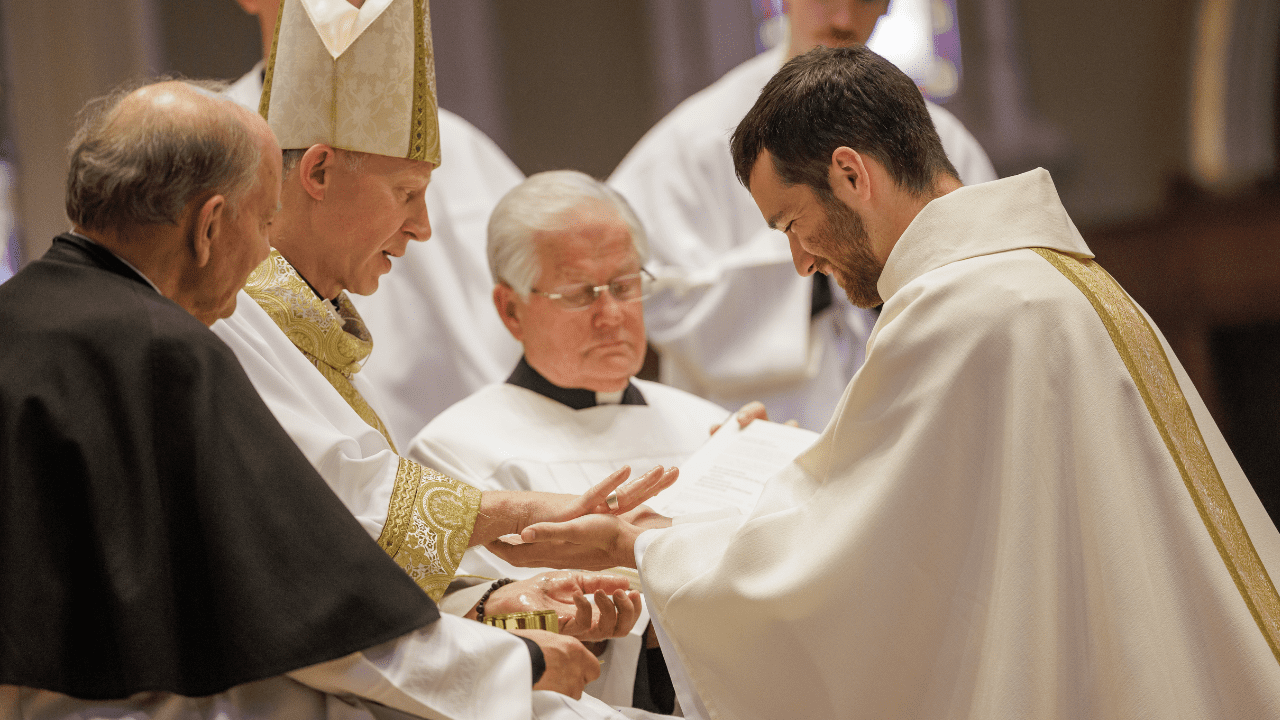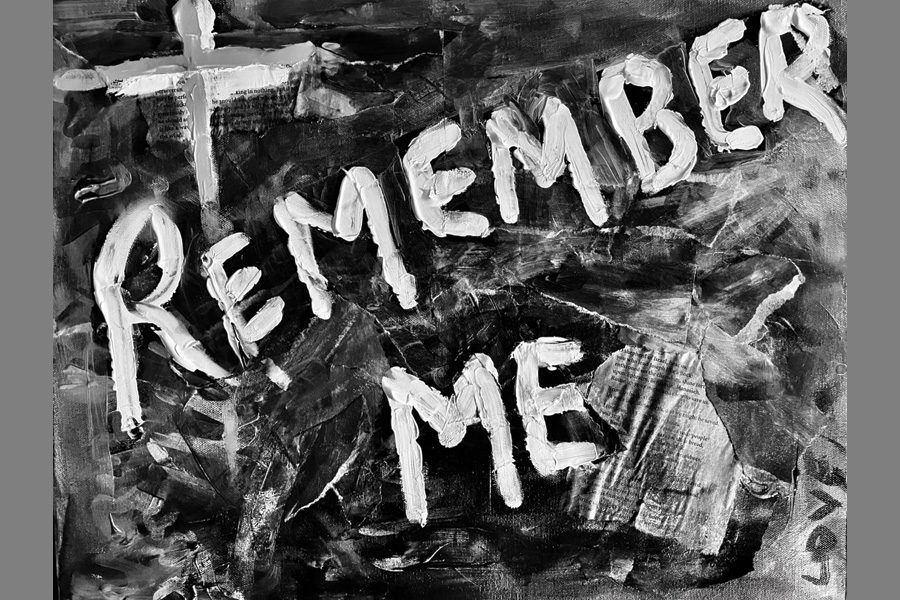Jesus speaks these words to Peter at the very end of the Gospel of John, after Peter tells Jesus three times that he loves him:
“‘Amen, amen, I say to you, when you were younger, you used to dress yourself and go where you wanted; but when you grow old, you will stretch out your hands, and someone else will dress you and lead you where you do not want to go.’ He said this signifying by what kind of death he would glorify God. And when he had said this, he said to him, ‘Follow me.’” (John 21:18-19)
This might seem like a strange follow-up to Peter’s confession of faith and love. Jesus offers a very brief commentary on aging and sacrifice: when Peter grows old, he will lose his independence and agency, and others will decide for him where he will go.
I’ve thought about this passage in connection with the religious vows of poverty, chastity, and obedience that we make in Holy Cross. These vows which define our life in community are all implicitly present in these last words of Jesus to Peter and also in the realities which many people face as they age.
By the vow of poverty, we make a commitment to depend on the community to take care of our material needs and not on our own resources and wealth; as people age, they often have to rely on others to supply those needs.
By the vow of chastity, we forgo marriage and sexual relationships; as people age, many become widows and widowers who go forward as single people.
By the vow of obedience, we promise to live and work faithfully wherever we are sent by our superiors; as people age, they often must live in the places that others choose for them, no longer able to “dress yourself and go where you wanted.”
So, in a certain sense, the vows that we take in Holy Cross are a “fast track” to getting old – a concept that could hardly be more contrary to the values and attitudes of our society, which places a high premium on power, autonomy, strength, and wealth. Through the vows, we are called to opt out of chasing those things, not because it is bad to develop one’s abilities or use one’s gifts, but in order to give ourselves the freedom to focus on what is ultimately important: becoming more and more like Jesus Christ.
The Gospel says that Jesus said all this “signifying by what kind of death he would glorify God.” Usually this is interpreted in reference to Peter’s martyrdom and sacrifice of self for Christ. All of us as Christians are called to glorify God in our lives – and in our deaths too. For many people, this reckoning comes about in old age, when our frailty and mortality as human beings strips away the power and independence that we treasure so highly and forces us to trust God as we cross over to him in death. But for us in Holy Cross, our vows ought to put this question before us, too, of how we glorify God by our lives and our deaths, sometimes even by going “where you do not want to go.”
In the end, all of us have to hear and respond to the same words of Jesus, whose first words to Peter were the same as his last words, and which mark the very beginning and very end of our own Constitutions: “Follow me.”
Fr. Steve Jakubowski, CSC
Published 24 July 2024




